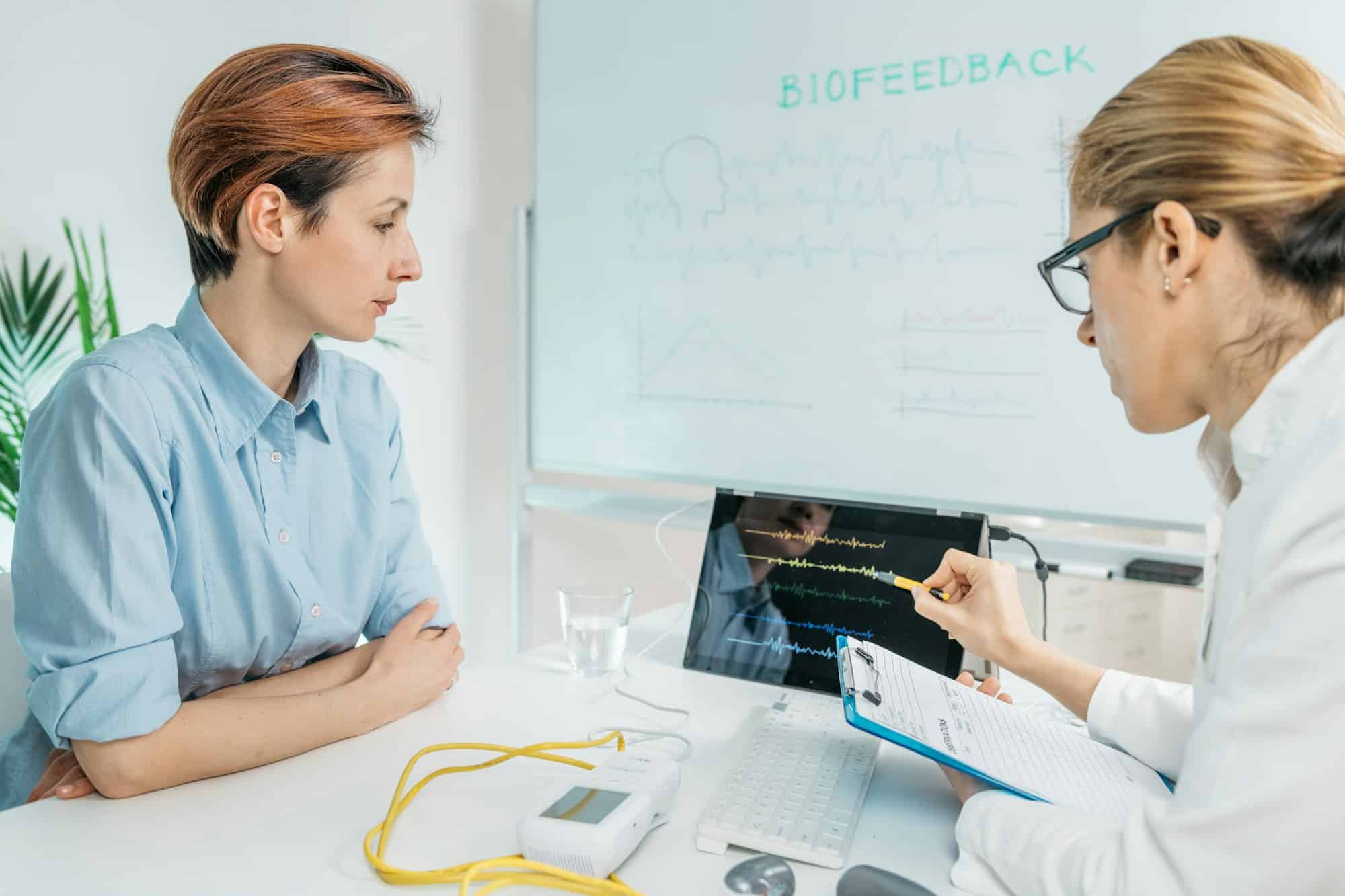You’ve probably heard about meditation, the ancient practice that’s gaining widespread attention for its range of mental health benefits. Recent research extends its potential benefits further, pairing it with a modern technique called biofeedback. Biofeedback is a method that teaches individuals how to control their physiological functions. This technique holds promise for stress reduction and treating mental health conditions like anxiety and depression. But how exactly does the use of biofeedback in meditation practice influence stress reduction?
The Intersection of Biofeedback and Meditation
Meditation and biofeedback may stem from different origins, but both share the common goal of improving mental and overall health. Before we delve into how these two techniques intersect, let’s understand each of them individually.
This might interest you : What Are the Benefits of Incorporating Balance Training into Fall Prevention Programs for Seniors?
Meditation is an age-old practice that involves achieving a state of deep calm and tranquility, often with the aim of alleviating stress and improving mental clarity. It requires focus and the ability to ignore distractions, allowing the participant to achieve a state of inner peace.
On the other hand, biofeedback is a more recent development in the health field. As its name suggests, it involves feeding back information to individuals about their physiological functions, such as heart rate, muscle tension, and brainwave patterns. Biofeedback devices provide this information in real-time, thereby equipping people to control their physiological responses.
Topic to read : How Does the Adoption of Standing Desks Affect Posture and Musculoskeletal Health in Office Workers?
The intersection of biofeedback and meditation lies in their shared goal of bettering mental health and their complementary methods. Biofeedback provides data about the body’s physiological responses, enabling individuals to gain deeper insight into their meditation practice. They can then use this information to control their responses more effectively, leading to enhanced benefits from meditation.
Biofeedback, Meditation, and Stress: The Connection
Stress can take a toll on our bodies and minds, leading to numerous health issues. Recent studies suggest that biofeedback-assisted meditation can be a powerful intervention to reduce stress.
A group of participants in a study published in the PubMed journal demonstrated significant stress reduction after using biofeedback during meditation. The biofeedback device offered them real-time data about their heart rate, breathing rate, and brainwave patterns. This allowed them to recognize when they were entering a stress state and consciously work towards achieving a relaxed state.
Another study published in the Scholar journal highlighted how biofeedback-assisted meditation could also help control anxiety and depression. Participants reported a decrease in the symptoms of these conditions after regular practice.
The role of biofeedback in enhancing the stress-reducing effect of meditation is also highlighted in a systematic review published in the Crossref journal. The review revealed that biofeedback could help individuals gain better control over their physiological responses, thereby improving their ability to manage stress.
The Science Behind Biofeedback-Assisted Meditation
The benefits of biofeedback-assisted meditation are backed by scientific data. This section will explore some of the key findings in this area.
Biofeedback devices monitor various physiological parameters such as heart rate, breathing rate, skin conductivity, and brainwave patterns. These parameters are often altered when an individual is stressed. By using biofeedback devices during meditation, individuals can gain insight into their body’s response to stress and learn to control these responses.
Research has shown that biofeedback can significantly improve the effectiveness of meditation. A study published in the PubMed journal reported that participants who used biofeedback during meditation had a lower stress response than those who meditated without biofeedback.
The use of biofeedback in meditation can also lead to long-term changes in the body’s stress response. A study published in the Crossref journal showed that individuals who used biofeedback-assisted meditation experienced changes in their brainwave patterns, indicating a reduction in stress response.
Practical Implications and Future Directions
The use of biofeedback in meditation has clear implications for stress reduction. It gives people the tools they need to understand and control their body’s physiological responses to stress. By doing so, it can help individuals manage stress more effectively and improve their overall mental health.
The evidence supporting the benefits of biofeedback-assisted meditation is compelling. However, more research is needed to understand the full extent of its potential. For instance, future studies could explore how biofeedback-assisted meditation affects different populations, such as individuals with severe mental health disorders or chronic diseases.
As our understanding of biofeedback and meditation continues to grow, these techniques could become instrumental in the prevention and treatment of stress-related health issues. Furthermore, the integration of biofeedback with meditation could pave the way for new approaches in mental health treatment. This could open up a whole new world of possibilities, where individuals are empowered to take control of their mental health in a more informed and proactive manner. In a world where stress is becoming increasingly prevalent, this possibility is certainly worth exploring.
The Process and Techniques of Biofeedback-Assisted Meditation
In the context of meditation, biofeedback enables you to gain an in-depth understanding of what’s happening in your body as you meditate. This section delves into the specifics of how biofeedback assists in meditation and its implications for stress relief.
Biofeedback-assisted meditation requires the use of a biofeedback device. These devices can be as simple as basic heart rate monitors or as complex as devices that monitor brainwave activity. The collected data provides real-time feedback about the body’s physiological responses. For instance, a rise in heart rate or muscle tension might suggest you’re experiencing stress, while slower breathing and relaxed muscles indicate a relaxed state.
Once you’re aware of these physiological changes, you can use meditation techniques to alter your responses deliberately. For instance, if your heart rate is high, you might focus on calming breathing exercises to lower it. Over time, with consistent practice, you can learn to control these physiological responses more effectively, leading to a decrease in stress.
Research supports the effectiveness of biofeedback-assisted meditation. An article published on PubMed showed that a control group using biofeedback during mindfulness meditation had a significant decrease in perceived stress scores in the post-test compared to the pre-test.
Moreover, incorporating biofeedback into meditation training enables individuals to gain a deeper understanding of their bodies’ responses to stress. This empowers them to take more proactive steps in managing their stress levels, leading to improved mental health overall.
Conclusion: Biofeedback and the Future of Stress Management
The combination of biofeedback and meditation offers a promising avenue for stress reduction and the improvement of overall mental health. The ability to understand and control physiological responses to stress can empower individuals to manage their stress more effectively.
Scientific studies, including articles published in PubMed and Google Scholar, have shown that biofeedback-assisted meditation can reduce stress, anxiety, and depression. These techniques can also lead to long-term changes in the body’s stress response, making them a viable option for ongoing stress management.
However, there is still much to explore. Future research could delve into how these techniques might benefit individuals coping with severe mental health disorders or chronic diseases. It would also be beneficial to examine how different biofeedback devices influence the effectiveness of meditation and whether certain devices are more useful for specific populations.
As we continue to grapple with the global issue of stress and its impact on mental health, the marriage of modern technology and ancient meditation practices offers a bright beacon of hope. The use of biofeedback in meditation could pave the way for innovative and effective mental health treatments, empowering individuals to take a more proactive and informed approach to their mental health. This evolution in stress management holds immense potential for reducing the global burden of stress, making it an area of research and practice worth investing in.






